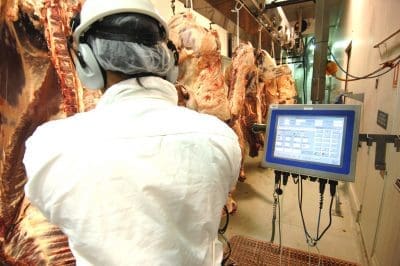SOME Queensland direct consignment slaughter grids have lost ground this week, as the industry works its way through a surplus caused by the recent Cyclone event, and general turnoff patterns.
 After a week of no-quotes from Queensland processors last week due to the Cyclone Alfred impact, most have re-opened the books this week, either priced or unpriced (slots only).
After a week of no-quotes from Queensland processors last week due to the Cyclone Alfred impact, most have re-opened the books this week, either priced or unpriced (slots only).
A number of export processors in Central and North Queensland have dropped 10c/kg on offers on steers and cows this week, due to supply. Southern Queensland is to this point unaffected by price changes, but that could change in coming days.
What’s clear is that forward bookings are now building across Queensland, with some plants now taking commitments for slots in May, weeks one and two. Some have space bookings only, with a price to be negotiated closer to delivery date. Delays caused by recent Cyclone Alfred are adding to the problem.
While some other processors in the region are not that far advanced, with slots still available in early to mid-April (priced), its arguably some of the longest lead-times for slaughter slots seen since the droughts of 2019, or possibly even as far back as 2014.
Labour challenges remain a key factor, with processors inevitably saying they would love to take more bookings, if they had the manpower to process them.
Active (priced) quotes in Central Queensland this week are 560c for cows, and 630c on four-tooth steer. In North Queensland cows this week are 540c and heavy grass steers 610c.
Further south in Queensland, supply pressure is not as acute, with offers seen this morning of 580c/kg on good slaughter cows and 650c on the bullock. Some kills this week that were secured earlier, unpriced, have dropped 20c/kg on earlier figures.
Some cattle vendors are clearly aware of the series of four or five short processing weeks coming in late April, booking cattle away in advance of that congestion period. Weather-watching is another factor, with some hedging clearly going on.
In southern states, there appears to be little change this week, with seasonal conditions and supply clearly a factor. In southern NSW, one processor has 590c/kg available on heavy cows and grass steers 670c, while eastern regions of South Australia having offers of 620c/kg on cows and 670c/kg on four-tooth grass ox.
There was no weekly national slaughter report for last week available by the time this item was published – but numbers will be well down on the pre-cyclone period, as up to six large NSW and QLD establishments were shut on Monday last week. The same happened the previous week when national numbers were down about 14,000 due actions taken in response to the cyclone, as well as port closures in Brisbane. Kill numbers for last week will be added here after they arrive.
Saleyards numbers bounce back
Most saleyard numbers rose sharply in fixtures held yesterday and this morning, as the effects of Cyclone Alfred passed.
Gunnedah yarded 3600 this morning, close to double last week’s offering. Overall the quality of the offering was mixed with the increased supply contributing to variations. Not all export processors were in attendance. A few well finished heavy grown steers carrying permanent teeth were cheaper for those with 4 or more teeth and dearer for the younger lines destined for the supermarket trade. Medium weight cows saw little change while the well-finished heavyweights sold on a cheaper trend of as much as 10c/kg.
Wodonga yarded 1200 this morning, the same as last week. Quality continues to decline with persistent dry conditions making the task difficult for producers to finish stock. Domestic and export buyers struggled to fill their orders due to lack of well-finished types. In the export market competition was solid if cattle were well finished. Bullocks made from 320-390c/kg. A mixed quality offering of cows saw price trends mixed. Heavy cows sold from 272-306c. It was a weaker market for leaner grades under 520kg, with D3s from 250-266c.
Wagga sale yesterday yarded 6150 head, up 40pc on last week. As the dry weather persists with no rain in sight, the cattle market experienced a surge in numbers. The quality of cattle remains mixed, particularly with well-finished stock under 500kg in short supply. Heavy steers destined for processors gained 30c, selling from 305-392c. However bullocks saw a decline, slipping by 12c to range from 322-380c. Heavy steers 500-600kg, particularly those with milk or two teeth, attracted strong demand, with the bulk selling from 306-406c/kg. The number of cows on offer surged to 1500, with plainer types entering the mix due to the ongoing dry conditions. Heavy cows remained unchanged, averaging 289c. Middle-run cows less than 520kg sold from 225-275c.
Naracoorte yarded only 845 this morning, similar to last week. The market was mixed. Grown steers sold firm, grown heifers gained 10c. Medium and heavy cows slipped 20c. Heavy scores C3 and 4 cows sold from 280-303c and the plainer D2 to D4s made from 245-290c. Medium weight cows made from 150-265c.
Roma store sale this morning doubled in size on last week as issues surrounding Cyclone Alfred evaporated. A small number of heavy steers +600kg sold 18c dearer to average 310c/kg, topping at 326c. Cows were yet to sell at the time the interim report was filed – full report tomorrow.

HAVE YOUR SAY